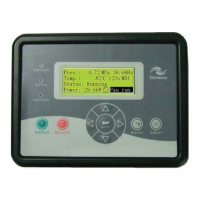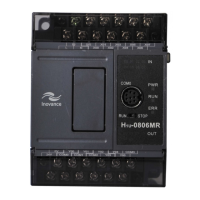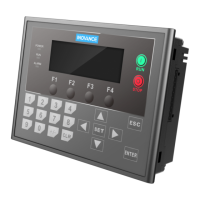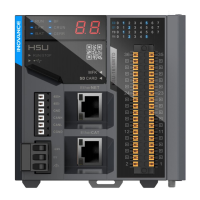540
7
7 Motion Control
G02: Clockwise arc interpolation; G03: Counterclockwise arc interpolation
The following is a diagram of counterclockwise arc interpolation.
It indicates an counterclockwise arc interpolation, wherein (150, 100) indicates the target absolute position
of the x- and y-axes. When the target position is the same, an example is provided on generation of an arc
less than 180 degrees and more than 180 degrees in IJ (center coordinate) mode and in R (radius) mode
respectively.
1) The user needs to set an appropriate target position so that the correct target circular path
can be generated. In absolute position mode, when the specied target position of the axis
at which the arc interpolation is performed equals its current position, a complete circle is
generated. In relative position mode, when the specied target position of the axis at which
the arc interpolation is performed is 0, a complete circle is generated.
2) Either the IJ (center coordinate) or R (radius) mode is supported.
3) In IJ (center coordinate) mode, no matter it is absolute position interpolation or relative
position interpolation, I, J, or K only indicates the difference (offset) of the central coordinate
relative to the current position on the x-, y-, and z-axes.
4) In R (radius) mode, when the R value is larger than or equal to 0, it indicates an arc less than
or equal to 180 degrees. When the R value is smaller than 0, it indicates an arc more than
180 degrees. In R (radius) mode, no complete circle can be generated.
5) More than 20 pulses shall be output along the arc during arc interpolation; otherwise, an error
is returned.
6) Up to 8,000,000 pulses can be output along the radius during arc interpolation. When
converted according to the default ratio, the radius is 4000 mm
7) The number of pulses output at the third axis shall be no more than 0.9 times that to be
output along the arc during helix interpolation; otherwise, an error is returned.
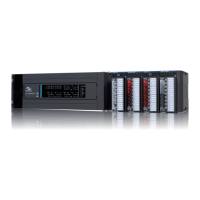
